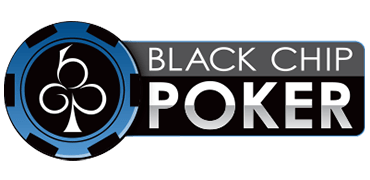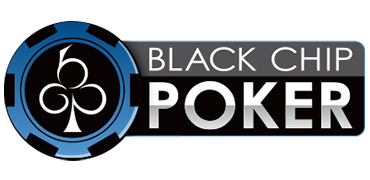What is a call down in poker?
In poker terminology, a call down is calling your opponent's bets on all postflop streets. The goal is to win the hand at showdown with a not-so-strong hand. If you have something strong, you might consider a raise instead of calling down to showdown.
Both beginners and experienced professionals use this technique. Beginners often overestimate their hand strength, meaning that they willingly pay off their opponents’ value bets. They take a passive line, calling bets from the preflop aggressor without considering which hands beat them.
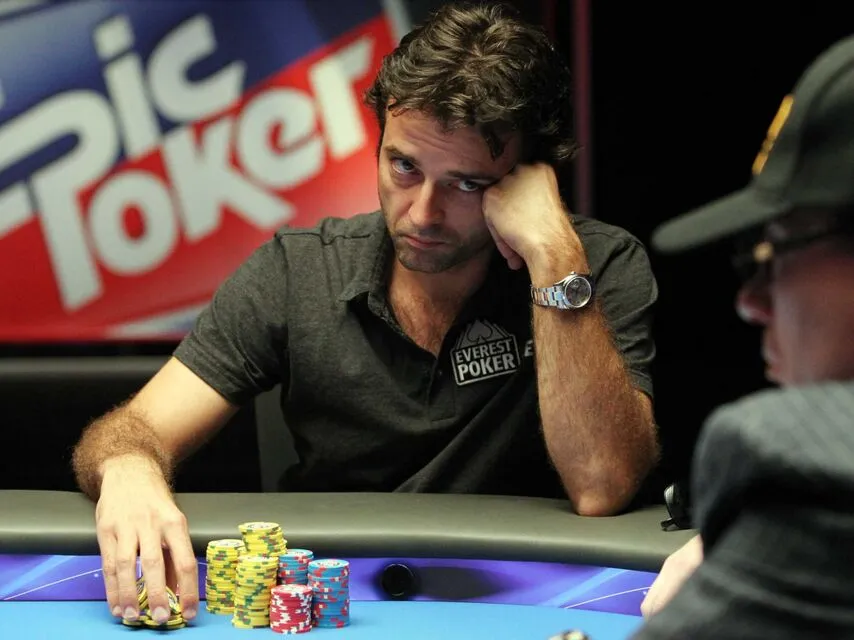
Experienced players look for clear reasons for a call down in poker. They represent their opponent's range and know which hands they will draw and bluff with. If there are enough bluff hands, it makes sense to try reaching showdown. However, raising with a medium-strength hand (like top pair with an average kicker) is pointless, as it can lead to facing a raise yourself.
Simple Call Down Example
Let's look at an example of a call down in poker.
You have A8 offsuit in the BB. An aggressive button player opens with a raise, and you call. The flop comes with an Ace and a flush draw. Your opponent bets on all streets, although the board doesn't become more dangerous, and possible draws miss. One available line is to call down and try catching his bluff.
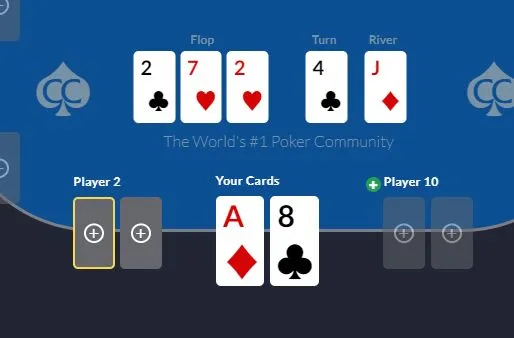
Sometimes a call down can be played without any made hand at all. The meaning behind this play is to exploit your opponent's aggression and bluffing tendencies.
When Can You Call Down in Poker?
It's difficult to give universal advice on when calling down is beneficial. Here are some basic examples:
– Against small bets: Often you'll call down against small bets from opponents with marginal hands like middle pairs. Such hands have a chance of reaching showdown.
– Against unknown opponents: Using a call down against unknown players is acceptable to gain information about their style and how they play certain hands. Just don't "buy" such information for too many chips.
– Against aggressive players: When facing a loose-aggressive opponent, it's hard to know what hand they have. With a medium-strength hand, it's better to call on all streets rather than raise.
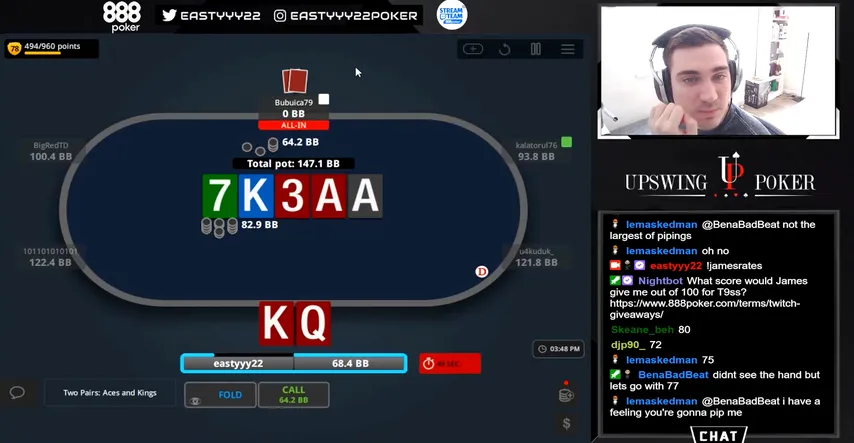
You may be interested in our other articles. Want to learn more about tilt or the story behind card suits? You will find all the answers to your questions for any poker subject in our full catalog of articles.
Of course, we also evaluate poker rooms on the market and identify the best ones. You’ll find all major rooms, with full reviews and useful information about stakes, formats available, and bonuses.






How to Call Down with Weak Hands
Calling down with weak hands in large pots is a tricky situation that requires careful consideration.
While it may be tempting to chase a big pot with a marginal hand, doing so can be costly in the long run. When facing multiple bets on various streets, it's essential to evaluate your opponent's range and betting patterns. If you believe your opponent is capable of bluffing or overvaluing their hand, calling down with a weak hand might be justified. However, if your opponent is a tight player who rarely bluffs, it's often wiser to fold and preserve your chips.
Continuously calling down with weak hands in big pots can lead to significant losses, especially if your opponent is exploiting your tendencies. It's crucial to find a balance between pot odds, your hand's relative strength, and your opponent's playing style when deciding whether to call down or fold in these high-pressure situations.
How to Call Down with Strong Hands (Should You Raise?)
When holding a strong hand in a big pot, many players instinctively want to raise it to extract maximum value. However, there are situations where calling down with a strong hand can be more profitable.
By flat-calling instead of raising, you allow your opponent to continue bluffing or betting with weaker hands, potentially increasing your overall winnings. This strategy is particularly effective against aggressive opponents who are likely to barrel off with a wide range.
By calling down, you also avoid scaring your opponent off their bluffs or marginal hands, which they might fold if faced with a raise. Additionally, calling down with a strong hand can be an excellent way to balance your range, making it more difficult for observant opponents to read your play. However, it's important to consider your opponent's tendencies and the board texture when deciding whether to call down or raise with a strong hand in big pots.
How to Learn Poker Productively
Learning to win consistently in modern poker is possible. Here's what you need:
– Practice regularly: If you want poker to become an income source, constantly improve your skills. Consider hiring a coach. Free ways to learn include watching streams and training videos. Find information about live broadcasts from Russian-speaking players on the GipsyTeam website homepage.
– Don't forget practice: This is key to gaining experience. Get free practice playing for money through any of the freeroll tournaments we post each day.. Several free tournaments with prize pools are held weekly. The three best monthly leaderboard players share $350.
To play these freerolls, create an account in the appropriate poker room using the GipsyTeam link. For questions, contact GipsyTeam support via Telegram, Skype or Discord. All consultations are free.
Find the full freeroll schedule and current passwords in the special section on GipsyTeam.
- Increased first deposit bonus
- Increased rakeback and reloads
- Help with deposits and cashouts
- Access to private freerolls
- Round-the-clock support
















